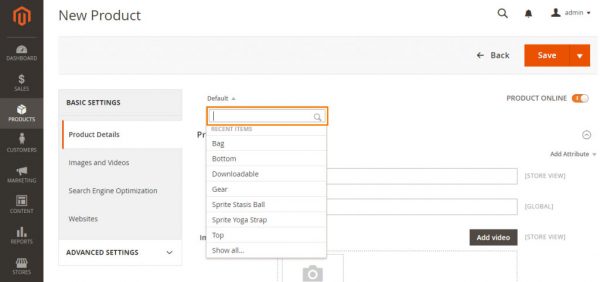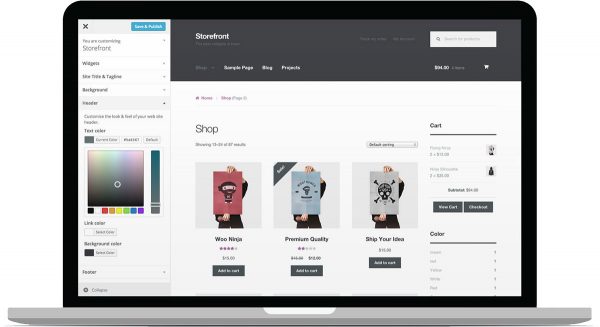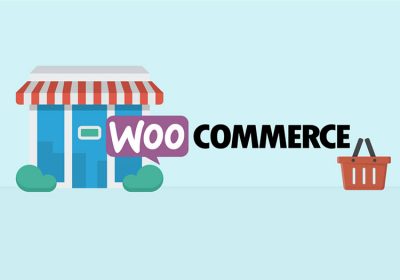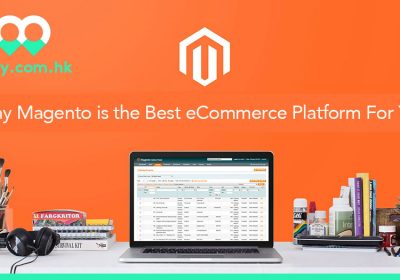
- Stats: 4068 0 0
- Author: admin
- Posted: December 14, 2017
- Category: E-commerce
Tips to Start Online Store: 4 Things Need to Know to Get Started
E-commerce is a hot commodity in the shopping world today. Online store is an excellent tool to promote and sell more for your brick and mortar shop, and they are great for exclusive business as well. But the ins and outs of how to build your store can be daunting. We hope to help you with the tools you need to get started.
3 important considerations when opening your online store
Of the many questions to be considered, the three most important considerations when opening your online store are:
- What kind of pay format should I use? Is PayPal the best, or is there something better suited to our needs?
- How do I decide on and acquire a domain name?
- How do I design attractive and enticing product pages?
Naturally, you will encounter more decisions to be made along the way, but start by making decisions on these three questions and the answers can be a guide for future decisions. Some of these decisions will be made easier after you’ve chosen a website builder.
E-COMMERCE WEBSITE BUILDERS
There are a few e-commerce online store builders available for you to consider. We can outline a few of the features for these builders to help you choose the one that best fits your needs. First, it’s important to
“Look for an ecommerce builder that provides flexibility and has the ability to grow with you as your business grows.”
When getting started, don’t expect everything to be perfect. The development of an online store is a big endeavor and there will be glitches along the way. But you do need something to get going. Having an imperfect version of your store is better than nothing at all, and will be a good stepping-stone toward the final version that accurately reflects your store image.
Once you’ve got your first version up and running, you can start gathering feedback and testing ideas. As you do this you can make revisions and changes to improve the quality and usability of your site and grow your business.
Look for an ecommerce builder that provides flexibility and has the ability to grow with you as your business grows. Remember, the builder is a tool that can help with the development of your business but it is just that, a tool. Your creativity and innovation can make all the difference and take things to the next level.
-
Magento eCommerce (244,000+ Active Online Stores)
Magento is one of the most popular platforms for eCommerce. This can be attributed to their vast set of features and customization abilities. With over 250,000 merchants to date, this is an ideal tool if you have the resources to incorporate advanced technologies.
Magento comes in two versions: Magento Open Source (formerly Magento Community Edition, which is better for medium sized businesses and less experienced web developers), and Magento Commerce (which is intended for more established businesses that have professional developers on hand). For the purposes of this article, we’ll be telling you about the features of Magento Open Source.
Magento is a reliable platform with powerful capabilities, but it is not for the first time user. Facilitating over $50 billion transactions a year, it is trusted by high volume merchants like Zumiez and Burger King. But if you have only basic computer skills and haven’t developed your own website before, Magento may be too advanced for you. Event Magento warns smaller businesses and new shops against using their software.
That being said, if you have a lot of tech experience, or have a developer on your team, Magento is an excellent tool. In fact, top Internet retailers use it more than any other platform. With several awards to their name such as Platform Internet Retailer Top 1000 (2015), #1 Platform Internet Retailer B2B 300 (2015), and #1 Platform Internet Retailer Europe 500 (2016), users with the appropriate skills are sure to be pleased with Magento.

Best for Mid-Size to Large Business
Because Magento is a more complex and comprehensive platform it takes more time, money and energy to get your site up and running. For this reason, it works best for mid-size to large businesses.
If you are just starting out and developing a site on your own, we wouldn’t recommend Magento, but if you’re a bit more established and have a web developer on staff, or the capacity to hire one, Magento may be a good fit for you.
Web Design
Magento does not provide pre-made themes but they are available from third-party developers. The price range varies greatly with a few being available for free and some costing up to $500. To get a sense of what these themes look like, take a look at Magento’s client list.
When choosing a theme, it’s important to remember that a lot of people do their online shopping on their phones. Thus, it’s imperative to choose something that is fully mobile responsive. This will help ensure you don’t lose potential customers due to frustration using your site while when on the go.
Features
When it comes to features, Magento is top of the line. If you’re seriously considering Magento for your online store, we recommend taking a look at the full list for yourself; it’s one of the best we’ve ever seen. While you’re there, take a look at the section titles. The end of the list contains features that are exclusive to Magento’s enterprise options.
The one feature missing from the Magento platform is abandoned cart recovery. But, if you have tech skills or are using a developer, you can always use integrations to create one. Besides that, Magento will likely already offer any other features you’re looking for. When it comes to feature options, Magento is the leader of the pack.
-
WooCommerce (441,000+ Online Stores)
If you’re looking to launch your online store, WooCommerce is a great choice for businesses. It will work if you’re starting from scratch or in conjunction with a WordPress website or blog that you’ve already set up.

Some of the pros to be found at WooCommerce are:
- It’s a free eCommerce plugin
- Includes a robust set of tools and features
- Basic support from the WooCommerce team
- Support is available from user communities that include software experts and actual business owners.
Open Source Codebase: WooCommerce is fully open sourced; this means that the code is available for free. You can view it; make changes and contributions at your leisure. Because it is open sourced, it encourages an active WooCommerce community. Someone will address your problems whenever you shout out.
Powered by WordPress: Contributing up to 24% of the Internet, many business owners are already familiar with WordPress. WooCommerce allows you to sell using a platform you are already familiar with. This saves you valuable time and energy.
Powerful Interfaces: One of the benefits of WooCommerce is that it allows you to set up your online store quickly and easily. With a focus on making the process user-friendly, it offers an on-boarding wizard to guide you through the setup process. This can usually be done in less than five minutes!
Extension Library: With a diverse range of add-on features (extensions), WooCommerce allows you to provide helpful information to your customers. This includes features like payment gateways and shipping calculators for specific countries, tax calculators, membership system management, subscription management, and anti-fraud protection to name a few. They also have a library of community-developed extensions that are available.
Benefits of WooCommerce:
Scalable: When growing their online presence, companies often run into problems when their business outgrows their selling platform. Because WooCommerce is powered by WordPress and is fully customizable, it can grow with you for years to come.
Customizable: Regardless of where you are located or where items ship, you can customize details and calculators according to your services. Because it is open sourced and extendable, if there is a feature you need that doesn’t already exist, it can be developed and customized with almost service provider.
Logically Feature Rich: WooCommerce includes all of the key features you need to run your online store with none of the fuss. Regular updates of new products and availability, order management and tax calculations are all handled via the platform, allowing you to serve the needs of your customers quickly and efficiently.
If you run a small business and are planning to set up an online store on your own, then WooCommerce would be an excellent tool to meet your needs.
(To Be Continued – go to Part 2 here )
Find top E-commerce Agencies with legit insights & reviews at 2Easy.com.hk now





